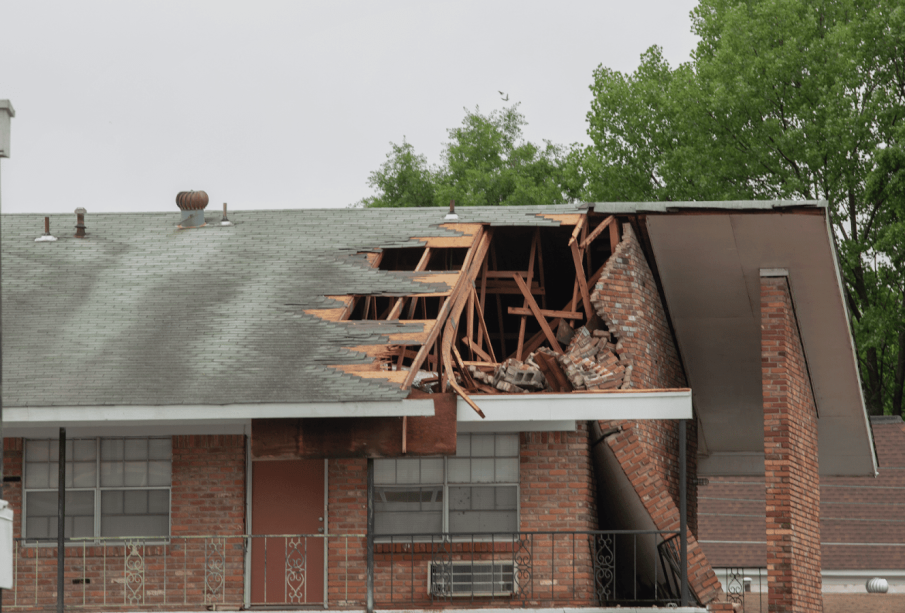Why You Shouldn’t Delay Storm Damage Cleanup After a Hurricane

Hurricanes are one of the most destructive natural disasters, leaving homes and communities in disarray. After the immediate threat has passed, many homeowners face the daunting task of cleaning up and repairing the damage caused by high winds, heavy rain, and flooding. While it might be tempting to put off storm damage repairs due to stress, time constraints, or financial concerns, delaying storm damage cleanup can lead to even more serious problems. Here are five reasons why addressing storm damage immediately is essential:
1. Prevent Mold Growth
One of the most immediate threats after a hurricane is the rapid growth of mold, particularly in water-damaged areas. Mold can begin to develop within 24 to 48 hours of water exposure, especially in humid environments common after a storm. Mold not only damages the structural integrity of a home but also poses serious health risks, such as respiratory issues, allergies, and asthma.
Delaying cleanup gives mold the opportunity to spread, making it harder and more expensive to remove later on. Immediate water extraction and drying are crucial to preventing a mold infestation from taking root in walls, carpets, and furniture.
2. Avoid Structural Damage
Storms often bring intense wind, rain, and flooding, all of which can compromise the structural integrity of your home. Water damage can weaken walls, foundations, and roofing. If left unaddressed, this damage can escalate over time, leading to cracks, sagging ceilings, and even potential collapse in extreme cases.
Quickly assessing and repairing structural damage ensures that your home remains safe and secure. By tackling these issues early, you avoid costly repairs and the risk of your home becoming uninhabitable due to long-term deterioration.
3. Prevent Electrical Hazards
After a storm, many homes are left with compromised electrical systems, either due to water damage or debris knocking down power lines and damaging electrical components. Flooding and leaks can create hazardous conditions where water comes into contact with electrical outlets, wiring, or appliances.
Failing to address these issues immediately increases the risk of electrical fires, short circuits, and electrocution. Engaging in timely repairs can ensure that your home’s electrical system is safe and functional, minimizing risks to your family’s safety.
4. Reduce the Risk of Pest Infestations
Storm damage can create perfect conditions for pest infestations. Floodwaters and debris often attract pests like rodents, termites, and mosquitoes, all of which can cause further damage to your property and pose health risks. For example, standing water is a breeding ground for mosquitoes, which can spread diseases like West Nile virus.
Addressing damage and removing debris promptly will reduce the chances of pests taking over your property. Sealing off openings, drying out water-damaged areas, and cleaning up any fallen trees or debris are essential steps to keeping pests at bay.
5. Simplify the Insurance Claim Process
Dealing with the aftermath of a hurricane often involves filing an insurance claim to cover repairs. Insurance companies typically require that homeowners take prompt action to prevent further damage after a storm. Delaying storm damage cleanup could result in your insurance claim being denied or reduced, as many policies have clauses requiring homeowners to mitigate damages.
Taking immediate action to assess the damage and initiate repairs not only protects your home but also ensures that you remain in compliance with your insurance policy. This makes it easier to receive the compensation you need to cover the cost of restoration.
Conclusion
The aftermath of a hurricane can be overwhelming, but delaying storm damage cleanup only makes the situation worse. Immediate action helps prevent mold growth, structural deterioration, electrical hazards, pest infestations, and complications with insurance claims. By prioritizing cleanup and repairs right away, you not only safeguard your property but also ensure a smoother and less costly recovery process.
















